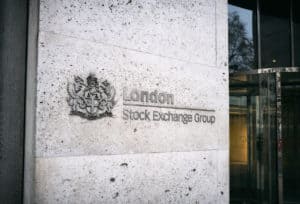At number ten was a story broken by The TRADE in September, news that Cowen’s prime brokerage and outsourced trading business had been acquired by Marex just six months after TD completed its purchase of the business.
This came amidst a near-constant stream of mergers and acquisitions across both the sell- and buy-side this calendar year. Demonstrably, more and more, companies are looking to ‘fill the gaps’ in their offerings, not by growing but by incorporating those who are already primed.
 The acquisition was completed earlier this month, with operations acquired set to be rebranded as Marex Prime Services and Market Outsourced Trading, with both becoming part of the Marex Capital Markets business (formed last year following the acquisition of ED&F Man Capital Markets). Following the acquisition, the business will continue to be led by Jack Seibald and Michael Rosen.
The acquisition was completed earlier this month, with operations acquired set to be rebranded as Marex Prime Services and Market Outsourced Trading, with both becoming part of the Marex Capital Markets business (formed last year following the acquisition of ED&F Man Capital Markets). Following the acquisition, the business will continue to be led by Jack Seibald and Michael Rosen.
Speaking in an announcement Ian Lowitt, chief executive of Marex, said: “Mike and Jack have built a terrific business, and its addition to Marex broadens the range of essential infrastructure we provide to clients, as well as creating opportunity for Marex to provide additional services to a new set of clients. Expanding our capital markets business also adds to our diversification and to the resilience of our franchise.”
The acquisition followed an announcement in June from TD Bank Group and Cowen that the prime brokerage and outsourced trading businesses were parting ways just months after the deal was completed, seeking a more ‘strategically and geographically aligned’ partner.
TD Bank Group completed its all-cash $1.3 billion acquisition of Cowen in March – following an initial announcement in August 2022. The plan was to create an integrated North American dealer to significantly advance its growth strategy in the region, specifically through the addition of Cowen’s US equities sales trading, execution, and research offering.
TD will continue to operate its own prime services business despite the Cowen spin-off
9. Ninety One shakes up trading leadership with new global deputy and lead for South Africa
The TRADE is renowned for its coverage of people moves, with one of the most read this year being the news that asset manager Ninety One had promoted from within for its new deputy global head of trading and head of trading for South Africa.
The TRADE revealed that former head of trading for South Africa at Ninety One, Doug Blatch, had been selected to support global head of trading at Ninety One, Cathy Gibson, as deputy, taking up the role after 26 years at the business.

Yanela Songca
Chosen to replace him in his regional role was Yanela Songca who has been appointed to take up the trading reins in South Africa after serving as a senior trader at Ninety One for nearly nine years. Songca’s appointment comes after nine years with Ninety One, originally joining the asset manager in 2015. He will report to Blatch.
Gibson told The TRADE: “The enhancement of his [Blatch’s] role is reflective of his contribution to the global book of business.
“[…] Throughout his career, Yanela has garnered cross asset-capabilities, having commenced his career on the equity desk before transitioning to the fixed income desk, this is no small achievement given the structural differences between the asset types. I would congratulate both Yanela and Doug.”
8. LSEG outage suspends trading on AIM stocks
At number eight came the attention-grabbing news from October that the London Stock Exchange (LSE) had experienced an outage which left just FTSE 100, FTSE 250 and IOB securities still available for trading.
LSE, who at the time of the story’s publication was still investigating the fault, explained that AIM stocks specifically were currently halted, with the exchange confirming that “orders in all other instruments currently halted will now be expired”.
More recently, this month, LSEG experienced another such outage, its second on AIM stocks in less than two months.
The outages are likely to spur on ongoing analysis by regulators globally over the stability and resilience of exchanges and procedures during market outages – specifically as regards their communications.
 In May, ESMA published its opinion on how trading venues should manage their operations and communication in the event of a market outage, with the comments following a consultation which the regulator launched in September 2022. ESMA reiterated that prior to an outage, venues should have a clear outage plan in place to be deployed should such an event occur.
In May, ESMA published its opinion on how trading venues should manage their operations and communication in the event of a market outage, with the comments following a consultation which the regulator launched in September 2022. ESMA reiterated that prior to an outage, venues should have a clear outage plan in place to be deployed should such an event occur.
In addition, earlier this year the UK’s Financial Conduct Authority (FCA) set out plans to create a taskforce to work on “good practices” in relation to conduct during an outage, as part of a secondary markets overhaul – announced in May.
During the second outage, LSE confirmed in a member notice at 9:23 on the morning of 5 December that it was investigating an issue impacting its trading system and that it was “undertaking immediate analysis”. Trading on all instruments other than FTSE 100, FTSE 250 and IOB securities was halted until 9:55 am when the exchange confirmed that it was set to resume trading at 10:15 am.
“Instruments will go into auction at 09:55 with uncrossing beginning at 10:15. All live orders remain on the system,” said the exchange in an update. However, following the opening of trading once again with said auction the problem reoccurred. In an update at 11:56 am, the exchange confirmed the issue was ongoing and that it was continuing to investigate. Trading resumed at 12:43 pm UK time.
The market has become increasingly concerned about the flurry of outages seen across the market. In June, SIX Swiss Exchange experienced its worst outage for over 10 years, halting trading for three hours, and other previous outages include Nasdaq’s Nordic markets which closed on 16 November 2022 without an auction, while marketplaces of the European exchange operator, Euronext, also suffered a three-hour interruption to trading on 19 October 2020.
Deutsche Börse also experienced two separate outages during 2020 due to software glitches. The issue is also one present outside of the EU, with a software issue coinciding with the launch date for the upgraded ASX Trade system, provided by Nasdaq, which forced the ASX to shut down for four hours on 16 November.